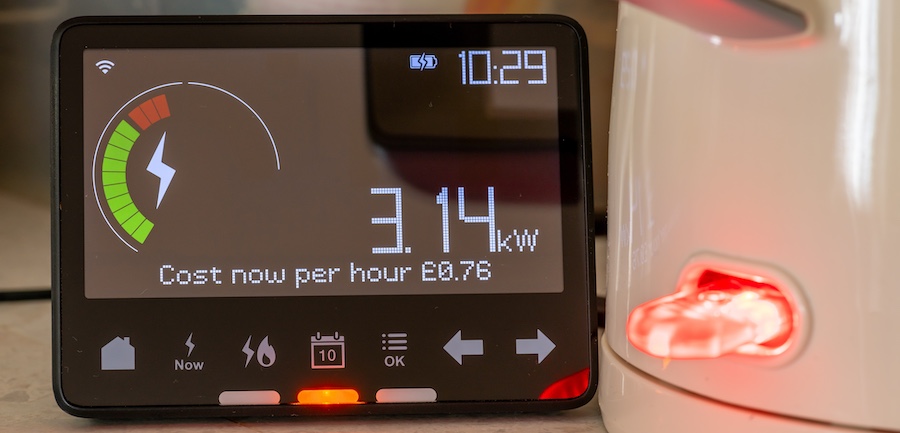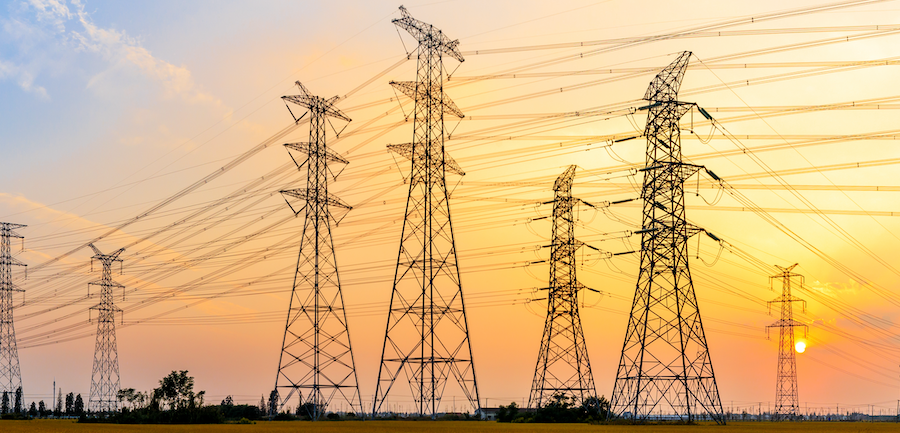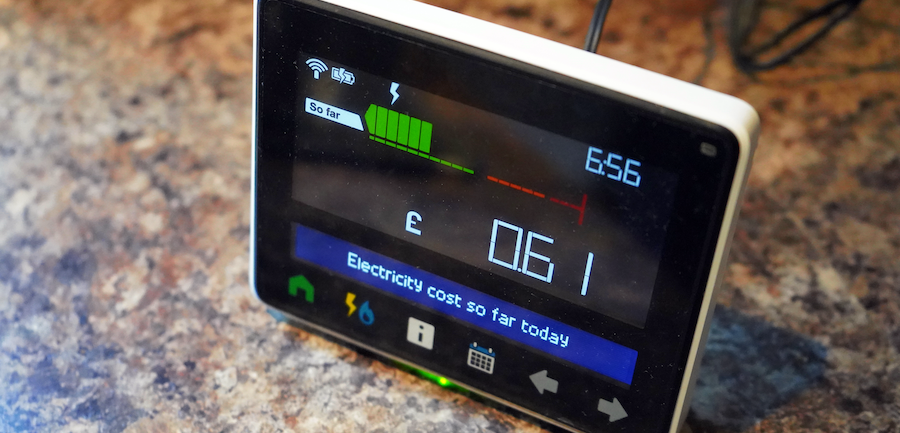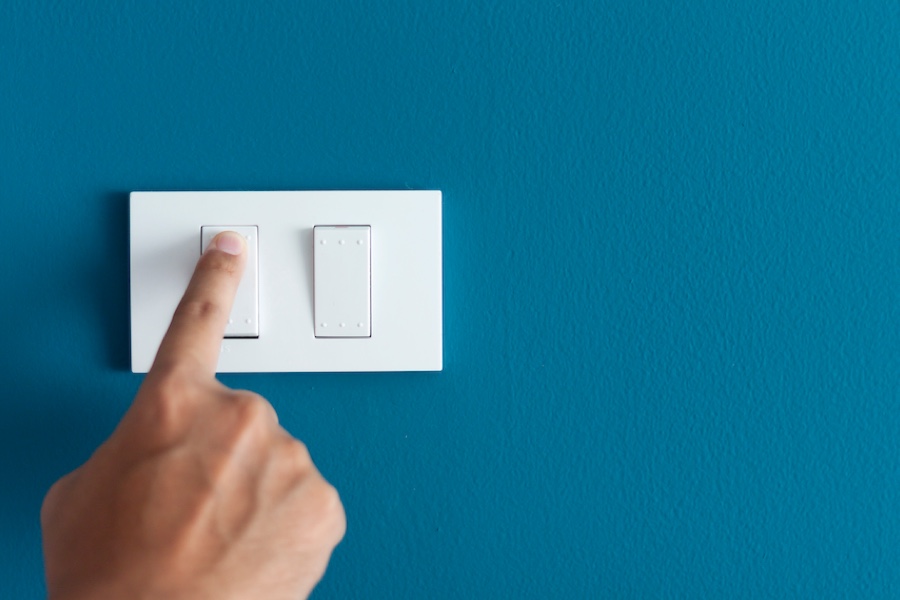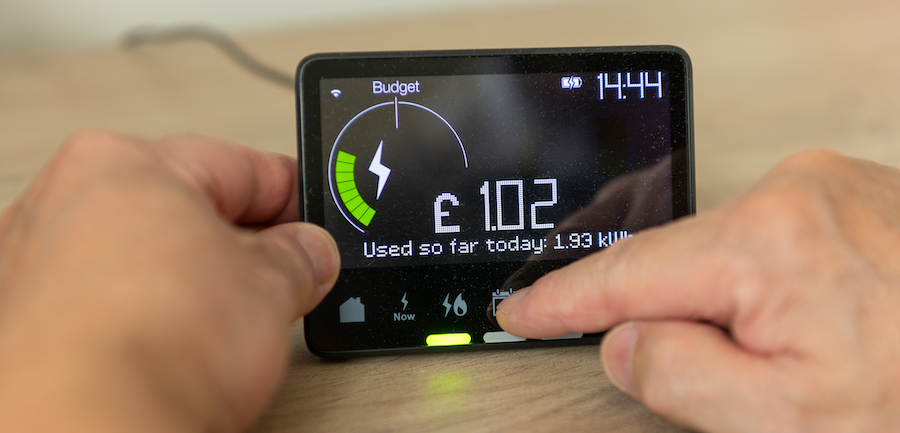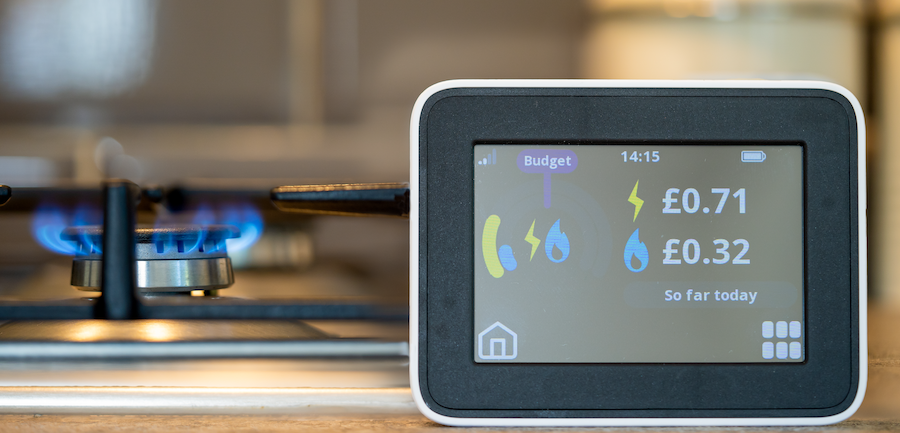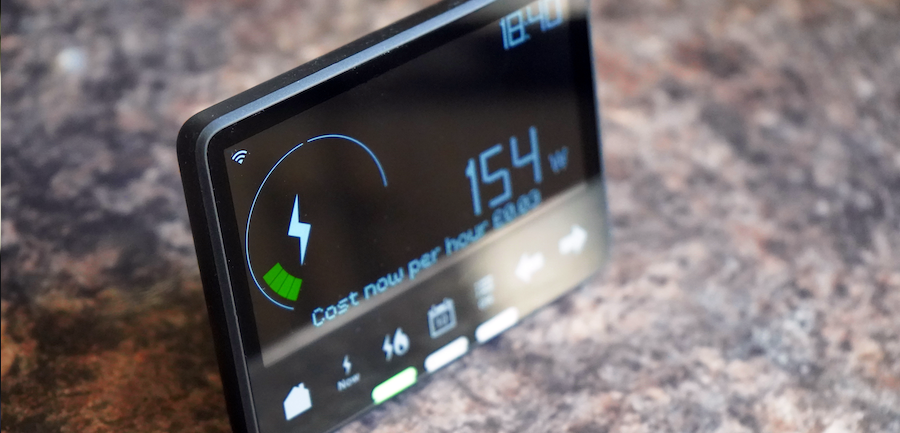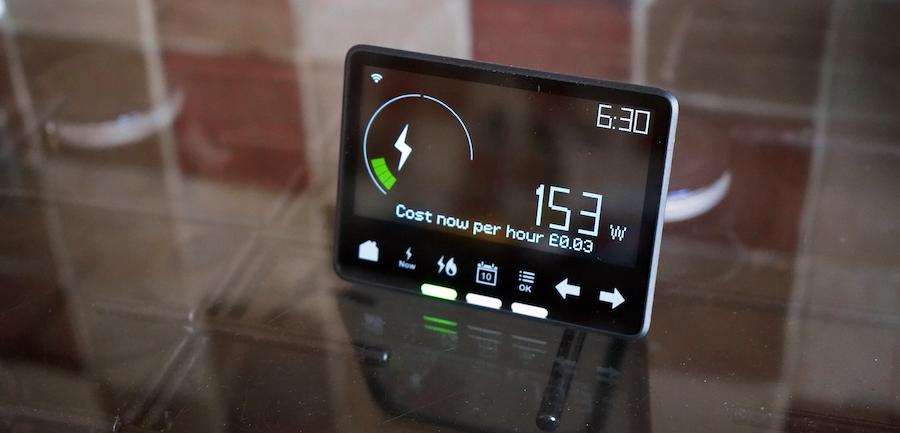January 29, 2026
The UK government is consulting on a new framework that would dramatically change how non-domestic energy contracts operate going forward. If adopted, the proposal would prevent suppliers from entering into new fixed-term contracts with business customers unless the business has a smart or advanced meter installed. This would start from January 1st 2027. In this article, we’ll look in more detail at what’s being proposed. We’ll also explain why it’s a good move for the
December 29, 2025
A new phase for the smart meter rollout
The UK smart meter rollout has now reached a point where scale is no longer the main question. By the end of September 2025, 70% of meters sitting in homes and small businesses were smart. That’s more than 40 million installed devices across the UK. At this level of coverage, the energy system has access to enough data to deliver the benefits of smart meters: More accurate forecasting Better network management Lower carbon emissions The
November 18, 2025
What’s next for non-domestic smart meters?
The government has opened a consultation to shape what happens after the current non-domestic smart meter targets end on December 31st 2025. Around 64% of business and public-sector premises already have a smart or advanced meter, but many smaller organisations still rely on traditional energy meters. The Department for Energy Security and Net Zero (DESNZ) wants to keep the rollout moving, maintain consumer protection, and ensure businesses continue to benefit from accurate data and smarter
October 15, 2025
A new chapter for smart meter communications
Ofgem has published a consultation on the draft Smart Meter Communication Licence, marking a significant step in shaping how Britain’s smart meter communications network will operate once the current Data Communications Company (DCC) model comes to an end. The consultation runs until 7 November 2025 and reflects the decisions made in Ofgem’s review of the DCC. The draft licence outlines how the future communications company will be governed, how its costs will be managed and
September 28, 2025
A turning point for the smart meter rollout?
The UK government is pushing to complete the smart meter rollout by 2030. The Department for Energy Security and Net Zero (DESNZ) has launched a new consultation to set a post-2025 policy framework. The ambition is stark: drive domestic smart meter coverage from today’s 63% to as much as 85–100% by the end of the decade. On the surface, it looks like a bold leap forward. In reality, the consultation has landed at a moment
August 23, 2025
Smart meter rollout hits top speed
June 2025 was a month of two halves for the UK energy marketplace. On one hand, smart meter installations hit a year-to-date high. On the other, the number of customers switching suppliers fell to their lowest point in months. Both trends are worth attention. The UK smart meter rollout is being hailed as a success in terms of pure numbers, but questions remain about its delivery and whether the potential benefits can be realised. Meanwhile,
July 25, 2025
Tackling energy theft
Energy theft costs British households more than they might realise. According to Ofgem data, it adds around £27 per year to a typical energy bill. That might not sound much, but across the country, it could add up to £760 million per year. And the impact isn’t only financial. From house fires to organised criminal gangs, energy theft brings real danger to homes and communities. Now, Ofgem has approved the creation of a dedicated police
June 25, 2025
Ofgem takes the wheel over MMHS
Market-wide half-hourly settlement (MHHS) is one of the most important – and most delayed – programmes in the UK energy sector right now. Initially scheduled to go live in early 2018, it has been pushed back multiple times. The current target is December 2026, with a contingency date already set for 2027. To speed things up, Ofgem has taken complete control of changes to key delivery milestones. Previously, the energy regulator only needed to approve
In April, we wrote about the demise of Rebel Energy, the UK energy supplier that had to cease trading in the face of rising wholesale gas prices and customers struggling with the cost of living. But was Rebel Energy an anomaly, or is the rest of the industry struggling too? Ofgem has rolled out new rules to strengthen capital resilience in the marketplace, ensuring suppliers have the financial depth to withstand future shocks. While most
April 20, 2025
Goodbye Rebel Energy
It’s been a few years since a UK energy supplier ceased trading due to financial issues. But unfortunately, it’s happened again. Rebel Energy – a small supplier with 90,000 customers based in Bedford – has gone out of business. The news was announced on April 1st by its founder, Dan Bates. In this article, we’ll look at the timeline that led to Rebel Energy’s demise. Then, we’ll lay out what happens next for Rebel Energy
March 10, 2025
Fighting fuel poverty
2025 is shaping up to be another challenging year for energy consumers. Energy prices are rising, with the Ofgem price cap rising by 6.4% for the period between April and June. There aren’t big tariff discounts available in the marketplace to tempt people to switch. In addition, more and more people are in energy debt, as MC2 Capital explained in this article. However, another growing crisis involves ‘fuel poverty’. A new report from the energy
In January 2025, the UK’s smart meter rollout achieved a significant milestone. The Data Communications Company (DCC) announced that 20 million homes and businesses are now connected to their network, utilising over 33 million smart meters. While it’s right to celebrate this achievement, it shouldn’t mask the massive underlying problems with the smart meter rollout. The rollout has been plagued with a history of technical issues, budget and time extensions, not to mention a global
January 18, 2025
Larger energy suppliers dominate as switching declines
When the energy monopolies were broken up and competitive markets were introduced in the 1990s, the aim was that suppliers would compete with each other to offer consumers better deals. It was supposed to lead to win-win situations, where the suppliers that delivered the best customer experiences would succeed, while consumers benefit. However, Ofgem’s latest Change of Supplier (CoS) report indicates it isn’t working. Fewer consumers are switching energy providers, while larger suppliers dominate the
December 15, 2024
4G smart meter hubs are on the way
The smart meter rollout aims to get a smart energy meter in 75% of the UK’s homes and businesses by the end of 2025. It’s not been a very smooth process so far, with technical glitches, budget problems and a global pandemic just three of the issues that have slowed down the rollout. Today, it looks like the rollout won’t hit its target. While some of the problems the rollout has faced were avoidable, there
November 25, 2024
The UK smart meter rollout is slowing again
The target to complete the smart meter rollout looks out of reach. However, the industry is not giving up hope yet. It’s fair to say the initiative to get smart energy meters into every home and business in the UK has not gone smoothly. Technical issues have made a whole generation of meters obsolete. There have been supply problems, budgetary miscalculations and more. Then, there was the COVID pandemic, which further derailed everything. At regular
October 25, 2024
Energy customers have never been happier with their suppliers
Ofgem research has found energy customer satisfaction is at record levels, with suppliers making vast improvements. How has this happened? It’s hard to believe, but the data doesn’t lie. Ofgem’s latest Energy Customer Satisfaction Survey has discovered that customer satisfaction levels are at a record high – only two years after they were at a record low. So how has this happened? Let’s take a deeper dive into Ofgem’s figures to try and find out.
September 20, 2024
Switching is on the rise, but do fixed tariffs actually deliver value?
The number of households switching their energy suppliers has increased again. But are switchers making genuine savings? The number of energy customers switching suppliers is at its highest level since the start of the 2021 energy crisis. Driven by advice from influential consumer journalist Martin Lewis to lock down a tariff before the price cap increase in October, more than 250,000 customers decided to make the switch. However, industry research has found that only minor
August 16, 2024
Are too many smart meters running ‘dumb’?
Ofgem has launched an investigation to determine if the nation’s smart meters are smart enough. But what does that mean? The smart meter rollout has faced a lot of challenges since it began so many years ago. There have been a series of delays, technical problems, budgetary issues and, of course, a global pandemic. But now, there’s a new obstacle for the industry to navigate. Ofgem has begun an investigation to act on concerns that
Citizens Advice’s latest star ratings for energy suppliers are out – and they make grim reading. What can they do to improve their scores? Every quarter, Citizens Advice publishes star ratings for energy suppliers, tracking customer satisfaction across a range of metrics. The latest ratings are out, but unfortunately, they’re amongst the lowest ever across the industry, with no signs of improvement. In this article, we’ll look at these ratings in more detail and what
New figures show that smart meter installation numbers are down again. How can the powers that be get the rollout back on track? was 2019 – over years ago. However, a combination of technical issues, budget problems, public apathy and a global pandemic has meant that we’re still a long way from getting a smart meter in every UK home and business. What’s more, there are no signs of a plan to meet the current
May 24, 2024
The return of switching
After a long period of stagnation, consumers are starting to switch energy suppliers again. But what does that mean when you look behind the headlines? The latest Electralink figures are out – and it’s positive news for energy market observers. The number of people switching energy suppliers is at its highest level since 2021, when switching all but disappeared. However, when you dig deeper into the numbers, you see that the marketplace may not be
April 26, 2024
Why everybody wins with the Demand Flexibility Service
The UK’s Demand Flexibility Service helps energy suppliers manage loads and helps consumers save money. But how does it work? In the winter of 2022, when electricity prices were at their peak, the National Grid came up with an innovative idea to avoid energy shortages and help consumers save money on their bills. The Demand Flexibility Service (DFS)—the first of its type in the world—was considered such a success that it was repeated in the
After the chaos of the last two years, the energy sector in the UK may finally be returning to something like normality. Ofgem is lowering the price cap again, potentially saving consumers significant sums. However, it’s not all good news. In fact, many observers believe that consumers are not seeing enough of a reduction in what they pay. Are suppliers using this as an opportunity to make gains after tough times? In this article, we’ll
February 15, 2024
Customers are still dissatisfied with their utility suppliers
The latest UK Customer Satisfaction numbers are out – and it’s grim reading for utility providers. The UK Customer Satisfaction Index for January 2024 has just been published. Unfortunately for the utility sector, the numbers are not good. Public satisfaction with their utility suppliers is at a ten-year low. In this article, we’ll dive deeper into these figures and try to explain why consumers don’t care for their utility suppliers – and if there’s anything
January 26, 2024
Is the UK energy market returning to normality?
With the price cap coming down and more consumers switching suppliers, should we be optimistic about the future of the UK’s energy marketplace? The UK energy market has been tough for consumers in the last two years. We’ve seen sky-high prices, little choice in fixed tariffs and a closed market that discourages switching. It’s not been ideal for suppliers either, with many going out of business under the strain. However, two pieces of news may
December 22, 2023
Suppliers Urged To Act On Energy Theft
An open letter from Ofgem shares concerns that suppliers aren’t doing enough to combat rising incidences of energy theft. Energy theft is on the rise in the UK. There are more and more incidences of people tampering with their gas or electricity meters to try and get around paying for their energy. Ofgem is not happy with this development, as energy theft has adverse effects across the industry. As a result, they have written an
November 22, 2023
Challenges (and solutions) for the smart meter rollout
According to critics, the UK’s smart meter rollout is floundering again and a new approach is needed. What can be done? Let’s find out more. The UK’s smart meter rollout has had a troubled history, to say the least. Since it was first devised in 2008, it’s faced massive technical issues, several budgetary problems and a global pandemic that all but put a halt to the whole thing. The rollout was supposed to be completed
October 21, 2023
Solving The Tariff Trap
Why do energy suppliers trap so many consumers in tariffs that are too high? Can anything be done? Promoting competition in the energy industry was supposed to work so well. Suppliers were supposed to be able to compete for customers by lowering prices and offering incentives for business, all with the Ofgem energy price cap acting as a safeguard for consumers. However, in the aftermath of the worst energy crisis ever in the UK, many
September 22, 2023
Will The New, Lower Energy Price Cap Lead To More Switching?
Ofgem’s energy price cap is at its lowest in 18 months. Can consumers take advantage by switching suppliers at this time? The last 12 months in the energy industry have been volatile for everybody – suppliers, consumers, regulators and the government. Wholesale prices hit record highs, as did consumers’ energy bills. Of course, bills would’ve been even higher if not for the government’s Energy Price Guarantee (EPG), costing the taxpayer tens of billions of pounds.
August 26, 2023
Smart Meter Rollout On A Knife Edge
The UK’s smart meter rollout is continuing with a vengeance. But while there is news to celebrate, there may be trouble ahead. It’s fair to say that the UK’s smart meter rollout programme has been a bumpy ride. We’ve had technical problems that caused a whole generation of smart meters to be replaced. We’ve had budget issues and timeline extensions. We’ve even had a global pandemic that all but halted the rollout entirely. However, even
July 26, 2023
Which Suppliers Are Charging ‘Unfair’ Exit Fees?
As the UK government’s energy bill subsidies end, some suppliers may not be playing fair with their customers. Since October 2022, the government has capped the unit price consumers pay for their electricity and gas through its Energy Price Guarantee. While this support has now ended, from July 2023, the good news is that the current Ofgem price cap is lower than the rate previously set. In theory, customers should be able to switch their
In a world where every penny counts, discover how smart meters can be your secret weapon for saving both energy and money! At Meter Corp, we regularly trumpet the benefits of smart meters, including: Automated meter readings The ability to see your energy use in real-time Nudges towards saving energy (and money) However, it’s emerged that consumers are gaining greater benefits from having smart meters than industry experts (and the government) initially thought. The problem
May 23, 2023
Ofgem’s Smart Meter Rollout – What’s Happening?
The UK’s energy regulator has documented the past, present and future of the smart meter rollout. But what does it mean to you? In an open letter, Ofgem, as the regulatory body in charge of the UK’s energy industry, has set out the current status of the country’s smart meter rollout. It documents everything that has happened this year to progress the rollout and identifies what needs to be done moving forward to meet the
April 21, 2023
What is a prepayment smart meter?
Even if you pay upfront for your energy, you can reap the benefits of smart meters. Are prepayment smart meters right for you? Standard smart meters that display your energy use in real-time and communicate with your supplier are by far the most popular type of smart meter. But they’re not the only type. For example, if you’re on a prepayment tariff with your energy supplier, you can get a prepayment smart meter which brings
March 17, 2023
Has Sanity Returned To The UK Energy Market?
While nowhere near previous levels, consumers are beginning to switch power suppliers again. But is the energy industry ready for a return to competitiveness? It’s been a crazy year for the UK energy industry. Thanks to a perfect storm of factors, we’ve seen all-time high prices, blackout scares and unprecedented government intervention. During this time, competition between energy suppliers for consumer business all but disappeared. Even price comparison websites that get paid for delivering switchers
December 19, 2022
Smart meter customers rewarded for smarter energy use
Several major energy suppliers are incentivising their customers with smart meters to save energy at peak times. How does it work? Let’s find out more. We all know about the energy crisis that is engulfing the UK right now. The supply of power is low thanks to many factors, including a resurgence in demand after the pandemic and Russia’s invasion of Ukraine. Energy prices are higher than ever, so high that the UK government is
November 10, 2022
Worldwide Smart Meter Use
It’s not just the UK that is reaping the benefits of smart meters. It’s happening all over the world. Let’s find out more. It’s been a rocky ride, with technical issues, financing problems and a global pandemic to overcome, but the UK smart meter rollout is finally progressing towards its target. The target, which has been extended on several occasions, is ambitious. The goal is to get a smart meter in every home and business
October 31, 2022
How your smart meter can help you navigate the energy crisis
We’re all worried about the rise in energy bills, but could your smart meter give you a bit of extra help? Let’s find out more. It’s been the top news story for months. Gas and electricity prices are at record levels due to a perfect storm of factors, including the war in Ukraine and a resurgence in demand after COVID-19. It’s tough for all of us, even with government intervention that fixes the unit price
September 22, 2022
Do you know your meters?
Some meters are smarter than others. What’s in your home – and could you benefit from a smart meter? Let’s find out more. More and more people are getting smart energy meters every day in the UK. It’s all part of the government’s plan to get a smart meter in every home and business by the end of 2025. But what are they replacing? There are several types of energy meters, all with their own
August 5, 2022
The global smart meter market is growing fast
Smart meters are making a difference to consumers and businesses worldwide, with no signs of stopping. Let’s find out more. We talk extensively about the UK’s smart meter rollout, its setbacks and successes. However, it’s clear that smart meters are becoming a global phenomenon. A new study from Fortune Business Insights on the worldwide market for smart meters predicts impressive growth over the next few years. In this article, we’ll look at the numbers that
Getting a smart meter installed in your home is quite a straightforward process, but it still helps to be prepared. Let’s find out more. Congratulations! You’ve made the decision to get a smart meter installed in your home. Soon, you’ll be able to reap the rewards of having a smart meter, including more accurate bills, no more sending meter readings to your supplier and being able to monitor your energy usage in real-time. However, you
June 23, 2022
20 million smart meters – and counting
The 20 millionth smart meter has just been installed in the UK. Let’s find out more about the smart meter rollout and look to the future. It’s fair to say that the UK’s smart meter rollout hasn’t gone as smoothly as the government would have hoped when it first began in 2011. There have been several technical issues, notably when it was discovered that many smart meters didn’t work if the customer switched their supplier,
May 13, 2022
Can anyone get a smart meter?
Getting a smart meter is an easy process, as long as you’re eligible. But who can and can’t get a smart meter? Let’s find out more. There are several benefits to getting a smart meter installed in your home or business. Accurate billing – no more estimated billsConvenience – say goodbye to manual meter readingsReal-time energy use information nudges you towards saving energy – great for your bank account and the planet But, before you
March 30, 2022
Alternatives to smart meters
Smart meters are great, but they’re not the only meter you can have in your home. At Meter Corp, we talk a lot about smart meters. That’s because we genuinely believe in the benefits they can bring to energy consumers: Accurate billingEase of use – no more manual meter readingsReal-time energy use information nudges you towards saving energy However, getting a smart meter in your home is not compulsory. You may be happy with the
February 25, 2022
Why smart meters will need to become smarter
Smart meters must evolve to catch up with technology and avoid becoming obsolete. How will it happen and who’s paying for it? It’s fair to say that the UK’s smart meter rollout has had its fair share of problems. Technical hitches, budget issues and a global pandemic have all derailed the project at times. However, in 2022, things are starting to get back on track. Installation numbers are high again and many consumers are beginning
January 26, 2022
Smart meters in 2022
What does the new year hold for the smart meter industry in the UK and around the world? Let’s find out more. At Meter Corp, we always like to keep you updated on the fast-moving smart meter industry. It seems there’s always something going on, from the smart meter rollout to new tariffs and beyond. Looking back on 2021, it’s clear that it was a year of massive upheaval for the smart meter sector as
November 26, 2021
10 reasons to get a smart meter
Still on the fence about getting a smart meter installed? Let’s find out about the brilliant benefits smart meters can bring you. There’s been a lot of talk about smart meters in the news at the moment, especially around the current energy supply issues affecting the country. But is it really worth taking the time to get a smart meter installed in your home? In this article, we’ll go through ten benefits of smart meters.
October 29, 2021
Smart meters and rented accommodation
If you’re a landlord, installing a smart meter into your rented properties can benefit you, your tenants and the planet. Let’s find out more. You already know that smart meters can bring you many benefits. Being able to monitor your energy consumption in real-time makes it easier to understand your relationship with energy. Then, you can make small changes to reduce your energy consumption, saving you money and being kinder to the environment. But did
High wholesale prices are causing problems for energy suppliers and consumers alike, but the UK government is working on measures to solve them. Let’s find out more. It’s an unprecedented time for the energy industry. A combination of events has created a perfect storm, which is bad news for energy suppliers and consumers. Suppliers are going out of business, consumers are facing substantially higher energy bills, while the knock-on effects could be disastrous. The UK
August 28, 2021
How smart meters enable a more energy-efficient future
As renewable energy becomes cheaper and more prevalent, your smart meter could be the hub of your new energy-efficient home. Let’s find out more. If you’ve got a smart meter in your home, you’re already aware of how it makes it easy to monitor how much energy you use in real-time. Smart meters keep track of how much gas and electricity you consume at any given moment and display it to you in an easy-to-read

